At the heart of AU Small Finance Bank’s social impact philosophy lies a simple yet transformative belief: empowerment begins at the grassroots. Through its dedicated CSR arm, AU Foundation, the Bank extends its mission beyond financial inclusion to foster holistic development and opportunity creation for those at the bottom of the pyramid. In this case study, we explore how AU Small Finance Bank (AU SFB) is translating this belief into tangible impact, creating pathways for individuals to realize their aspirations and build self-reliant futures.
This commitment to inclusive growth is reflected in every initiative the Bank undertakes, from nurturing women entrepreneurs and skilling young minds to building confidence through sports. Each program is thoughtfully designed to reach the unreachable and serve the underserved while moving beyond charity and creating ecosystems of empowerment that endure.
It is this vision that drives AU SFB’s social purpose, as Mr. Uttam Tibrewal, Executive Director & Deputy CEO, explains, “Our efforts are consistently channelled towards people from marginalized backgrounds,” he shares. “We prioritize empowering youth and women by addressing critical thematic areas in education, women’s empowerment, sports, livelihood enhancement, environmental sustainability, and healthcare. Through strategic and flagship projects designed for long-term sustenance, we’ve impacted several lives.”
 Each of the bank’s flagship and strategic CSR programs such as: AU Ignite, AU Udyogini, and AU Bano Champion represents a cornerstone of this mission. Together, they align with India’s Viksit Bharat 2047 vision, creating equitable opportunities and enabling self-sustained futures that contribute to a developed India.
Each of the bank’s flagship and strategic CSR programs such as: AU Ignite, AU Udyogini, and AU Bano Champion represents a cornerstone of this mission. Together, they align with India’s Viksit Bharat 2047 vision, creating equitable opportunities and enabling self-sustained futures that contribute to a developed India.
At the forefront of this mission is AU Ignite- Unlocking You that is providing job-oriented skill training to youth helping them build a sustainable future. Through its flagship skill development initiative started in 2018, AU Ignite, the Bank addresses the crucial gap between education and employability. “Financial inclusion is not just about banking—it’s about creating pathways for youth to live independent and dignified lives,” says Mr. Tibrewal.
With a vision to empower rural and semi-urban youth across 12 districts of Rajasthan, AU Ignite operates through five direct academies—Bhilwara, Bikaner, Sikar, Jodhpur, and Kota—and eleven partner-led centers. The program provides industry-aligned training, holistic personality development, and assured job placement assistance, particularly for deprived communities.
With a strong industry-linked curriculum and on the job trainings, AU Ignite has trained over 31,180 youth, achieving an impressive 74% placement rate across sectors such as BFSI, Healthcare, Tourism & Hospitality and IT & ITeS.
Innovation, Inclusion, and Impact
The initiative constantly evolves to stay relevant in a dynamic economy. New features such as a digital Learning Management System (LMS), Trainer Development Program (TOT), external assessments with third party certification, achievement-based grant model, and AI-driven career guidance enhance learning outcomes and employability.
Symbolic elements like course specified uniforms, handbooks, and convocation ceremonies instill pride and identity among trainees. The program’s reach has extended beyond India—graduates have secured overseas placements in USA, Dubai, Kuwait, and Saudi Arabia.
AU Ignite stands as a movement of empowerment—enabling youth to achieve dignity through work, future-readiness, and financial independence.
Addressing Challenges and Changing Mindsets
Implementing AU Ignite across Rajasthan was not without challenges. “Working at the grassroots meant confronting social beliefs, cultural barriers, and logistical constraints,” recalls Mr. Tibrewal.
Social and Cultural Challenges:
In many rural regions, the idea of young women stepping out for professional training or employment was initially met with hesitation. Concerns over safety and workplace culture often limited female participation.
To overcome this, AU Ignite adopted a community-first approach—organizing awareness camps, mobilisation in targeted areas, family counselling, and community meetings led by alumni and local women role models. Gradually, this built trust and acceptance. As a result, female participation rose to over 55%, signalling a remarkable shift in social attitudes.
Logistical and Operational Challenges:
Operating multiple centers across diverse geographies required robust coordination. Trainer quality, regular attendance of beneficiaries, infrastructure, and curriculum uniformity were addressed through standard operating procedures, continuous upskilling, and TOT programs under the BFSI Sector Skill Council.
Aligning local aspirations with market demand was another challenge—youth often preferred government jobs while the market required service professionals. AU Ignite responded with dynamic curriculum updates, new trades, and digital modules.
Before opening new centers, Need Assessment studies evaluate local demand, industry presence, and trade feasibility, ensuring each center serves a real economic purpose.
Turning Barriers into Opportunities
AU Ignite converted challenges into opportunities through innovation and structure:
- Biometric attendance of both trainers and trainees
- Monitoring of day-to-day activities through live cameras
- Centralized monitoring dashboards to track performance and outcomes.
- Mobile LMS to provide uniform training access even in remote centers.
- Regular impact assessments for data-driven improvements.
- Industry partnerships to ensure placement relevance and exposure.
- Peer-driven storytelling and recognition of alumni that builds community ownership and local pride and referrals for new admissions
“Over time, communities began celebrating youth success stories. Parents who once hesitated now to encourage their daughters to join,” says Mr. Tibrewal. “That’s the real transformation we aim for.”
Cumulative Impact: 31,180+ youth trained, 23,000+ placed.
Empowering Women Entrepreneurs: AU Udyogini – “Aatmanirbharta se Badlaav Tak”
AU Small Finance Bank’s women empowerment initiative, AU Udyogini, was born out of a deep conviction: when a woman succeeds, an entire family and community succeeds with her. “By unleashing their hidden talent and helping them build businesses from their homes, women can care for their families while simultaneously pursuing their entrepreneurial journey,” says Mr. Tibrewal.
The AU Udyogini – Aatmanirbharta se Badlaav Tak program addresses the critical need for economic empowerment through livelihood promotion among rural women. It aims to foster women entrepreneurship, drive community development, create women agency and strengthen economic growth through sustainable livelihoods. By providing necessary skills, trainings, resources, mentorship, and support in remote geographies where societal barriers are significant, AU Udyogini breaks down structural constraints and creates lasting livelihood opportunities.
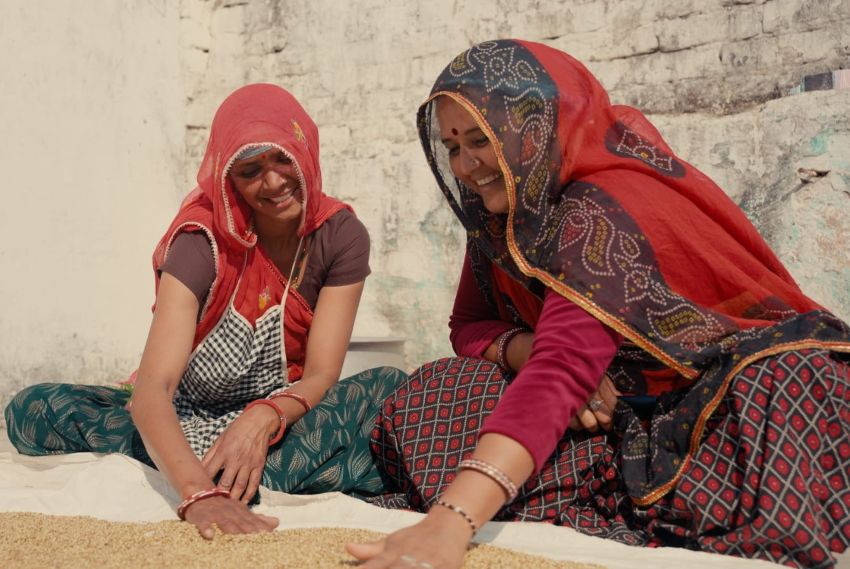
Dual Model of Empowerment
The program operates through two well-structured models— Collective Entrepreneurship and Individual Entrepreneurship—each tailored to meet the needs of women at different stages of their entrepreneurial journey.
1. Collective Entrepreneurship Model
Under this model, AU Udyogini has created and nurtured two pioneering enterprises (FPOs) :
- Maa Annapurna Masala – a women-led community enterprise delivering quality spices, pure mustard oil and Besan. It supports 210 women across eight centres. In 2024, new packaging was launched in 100g, 200g, 500g, and 1kg and 5ltr and 15 ltr SKUs, enhancing the FSSAI certified products’ market presence. Comprehensive digital training modules were also implemented to strengthen women’s digital capabilities. We provide our women entrepreneurs with opportunities to participate in exhibitions and establish linkages with diverse clients to enhance their market exposure and sales potential. Under our Maa Annapurna Masala initiative, we follow an innovative Masala Sakhi Model, wherein identified women entrepreneurs conduct door-to-door sales of our masala, oil, and besan products. This unique approach not only strengthens brand visibility but also ensures deep community outreach.
Launched in 2022, this initiative has now matured into a self-sustaining enterprise, as Khejri Mahila Producer Limited (Maa Annapurna) is entirely managed by women — from procurement of raw materials, cleaning and sorting, grinding, and packaging, to sales and distribution. Recently, we distributed mustard and coriander seeds to women farmers to cultivate in their fields by collaborating with Jobner Agricultural University as our technical partner. Once harvested, the yield will be procured directly by Maa Annapurna, eliminating the need for intermediaries or mandi purchases. This circular model not only enhances the financial resilience of women farmers but also reduces procurement and transportation costs for the enterprise — creating a sustainable and empowering value chain led entirely by women.
- Nirjhari Women Artisans Producer Company – a trademark-licensed collective enterprise – empowers over 215 women artisans by providing them with sustainable livelihood opportunities in home furnishings, home décor, apparel, and recycled paper products. Beyond skill development, Nirjhari focuses on creating a holistic ecosystem that nurtures economic self-reliance and social empowerment. We equip women with industry-relevant skills, including training on industrial machines and advanced embroidery techniques aligned with evolving market trends. Each artisan is also provided with an Artisan Card, granting them formal recognition and access to broader institutional opportunities. Upon completion of their training, interested women are supported through placement linkages with local industries, enabling them to secure stable livelihoods for themselves and their families. The Nirjhari AU Craft and Training Centre also runs an in-house crèche facility, ensuring that women can work productively while maintaining work–life balance. To strengthen market connect, Nirjhari artisans are linked to corporate partners for gifting solutions, volunteering engagements, and exhibitions—including prestigious platforms like the Jaipur Literature Festival. By working collectively, these women not only enhance their financial resilience but also cultivate a sense of shared ownership and leadership, fostering a new generation of grassroots women leaders driving inclusive and sustainable growth.
2. Individual Entrepreneurship Model
This model empowers women to launch independent businesses through non-refundable seed capital, skill development, capacity building trainings, exposure visits and mentorship. Training is delivered under the Entrepreneurship Development Program, which covers developing a business plan, financial and digital literacy, and begins with an Entrepreneurship Awareness Programme that ensures motivation, readiness, and long-term sustainability before enterprise creation. After three months of business initiation, we conduct refresher training sessions to assess on-ground progress and address any challenges the women entrepreneurs may be facing. This proactive approach enables timely resolution of operational or managerial issues, thereby ensuring the long-term sustainability and growth of their enterprises.
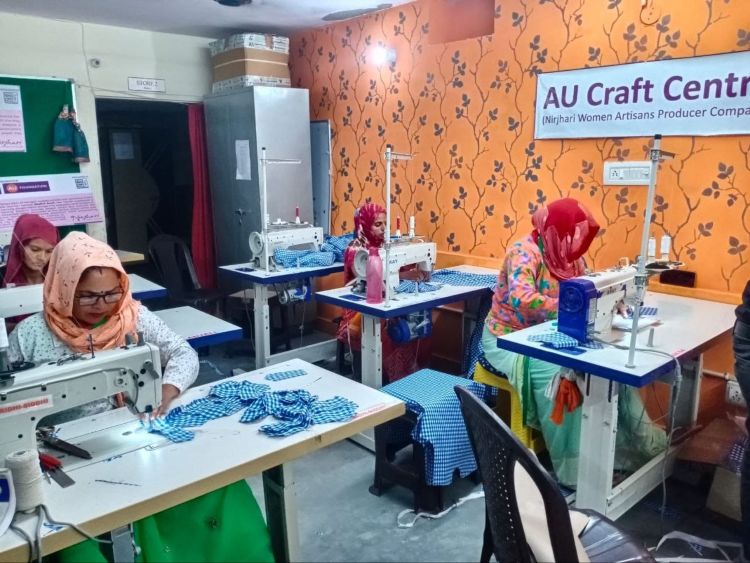
Creating Self-Sustained Futures
“Beyond providing training or funds to women in their chosen business, our goal is to enable women to stand on their own feet,” explains Mr. Tibrewal. “We help them prepare business plans, access finance and markets, and adopt technology that formalizes their enterprises.
AU Udyogini also emphasizes market readiness through exposure visits and exhibitions, connecting women directly with customers, suppliers, and fellow entrepreneurs aiding each other in business support. These real-world interactions help align their products and skills with evolving market trends. Under our Individual Women Entrepreneurship Model, we have adopted a unique approach to nurture grassroots leadership by creating Udyogini Sakhis — local women leaders who provide real-time support to fellow entrepreneurs in addressing operational and business challenges. This peer-support mechanism not only strengthens community-based mentoring but also enables close monitoring of enterprise performance, thereby ensuring long-term business sustainability. It is noteworthy that the business closure rate has remained below 5%, reflecting the effectiveness of this collaborative and resilient ecosystem.
Year-by-Year Growth: From Seeds to Scale
The journey of AU Udyogini reflects remarkable evolution—from training a few women in rural Rajasthan to building national-level women-led eco-system.
2018–19: Laying the Foundation
Focus: Skill Development & Institution Building
Operations began with self-employment training in stitching, embroidery, and mangori making. The program formed Self-Help Groups (SHGs) and built a strong base of 180 women.
2019–20: Pioneering Collective Entrepreneurship
Focus: Group-Based Enterprises
Launched two flagship collectives: spice making with rural women in Sambhar and home furnishing with women artisans.
2020–21: Innovating During Adversity
Focus: Pilot Programs & Adaptation
Piloted the Individual Women Entrepreneurship (IWE) program in Shahpura with 27 entrepreneurs during the COVID crisis. Trained 50 women in recycled paper products for corporate gifting—an innovation promoting sustainable enterprise.
2021–22: Branding Our Collective Strength
Focus: Formalization & Brand Launch
Introduced Maa Annapurna Masala and registered Nirjhari Women Artisan Company, formalizing the women artisan vertical.
2022–23: Scaling Impact & Expanding Models
Focus: Strategic Expansion & Direct Impact
Scaled the IWE program across three districts in Rajasthan (including two aspirational districts), directly impacting 470 women. Registered Khejri Mahila Producer Company Ltd (Maa Annapurna) for spices and launched a mustard oil processing centre in Khijuria. Added 850 more women under the SHG model.
2023–24: Consolidating Growth & Achieving Milestones
Focus: Sustainable Growth & Financial Success
Added 350 more women to the IWE program. Nirjhari and Khejri Mahila achieved a combined annual turnover of ₹75 lakhs, marking a major milestone.
2024–25: Crossing State Borders & Building Brands
Focus: Exponential Expansion & Brand Protection
Expanded to 13 new districts in Rajasthan and seven districts in Madhya Pradesh (including one aspirational district of MP), directly impacting 2,245 women entrepreneurs. Secured the trademark for Nirjhari and launched new packaging for Khejri Mahila.
2025–26: Becoming a National Catalyst
Focus: National Presence & Replication
Expanded the collective enterprise model beyond Rajasthan, supporting Bano Kabil—a group of women in Maharashtra creating home décor, furnishing, and DIY items. This marks AU Udyogini’s first step toward becoming a national catalyst for women-led entrepreneurship.
Launched Maa Annapurna retail outlet at Jobner, launched besan under Maa Annapurna and distributed mustard & coriander seeds to women farmers to cultivate in their fields.
Cumulative Impact: 5,200+ women nurtured.
Shaping Champions through Sports: AU Bano Champion – “Maidan se Manzil Tak”
Sports have long been a powerful instrument of social change—and AU Small Finance Bank harnesses that power through its AU Bano Champion initiative. Established in 2021 under the Sports for Development program, it aims to develop a culture of sports at grassroots, rekindle playground culture, provide guided sports training, promote health, and nurture resilience among children from underserved backgrounds By design, the program is executed in the home grounds of prospective beneficiaries, ensuring zero safety concerns and eliminating additional commutation costs, thereby enabling better participation.
“As a sports-forward institution, we believe sports can instill discipline, inclusivity, and teamwork—essential traits for life,” notes Mr. Tibrewal. “Through AU Bano Champion, we bring children back to playgrounds, away from screens, into spaces that build their confidence and community spirit.”
The Journey from 2021 to 2025
2021 – Launch year with seven sports across 30 locations and 3,000 youth. Conducted the first Coaches Development Program.
2022 – Expanded to 60 locations; hosted the first Village, District, and State Level Tournaments, mobilizing rural participation.
2023 – Introduced 16-week weekend leagues, fostering consistency and structured training.
2024 – Held exposure camps for athletes and organized the first Parents–Coaches Meeting to enhance collaboration.
2025 – Expanded to 75 locations with 8,000+ kids and youth. Completed three State & District Level and five Village Level tournaments.
Sports Covered: 7 (Athletics, Football, Wushu, Kabaddi, Volleyball, Throwball, Boxing)
Total Beneficiaries: 8,000+
Beyond Sports: Building Life Skills and Communities
AU Bano Champion embodies holistic child development. Grounded in evidence that physical activity and nutrition enhance cognitive growth, the program engages children aged 8–16 years—one-third of whom are girls.
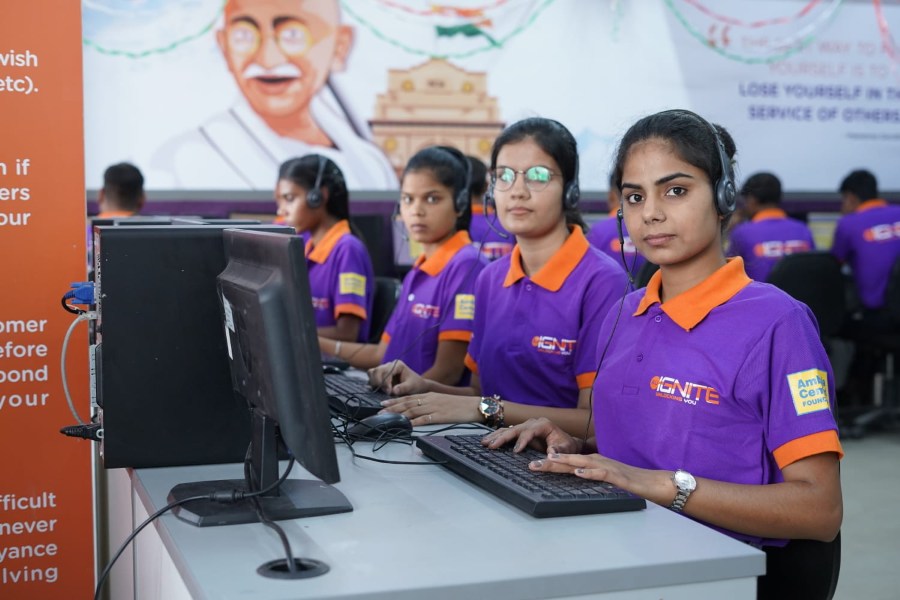
Key pillars include:
- Reviving the Playground Culture: Encouraging children to swap screens for sports, leading to healthier and more disciplined lifestyles.
- Building Champions Beyond the Field: Sports teach perseverance, teamwork, and resilience—qualities that shape confident individuals ready for life’s challenges. Selected athletes receive specialized exposure training designed to unlock their talent and propel them toward greater achievements.
- Strengthening Community Bonds: Local tournaments unite families, teachers, and neighbors, creating shared pride and strong social ties.
- Nutrition for Performance: Through nutrition drives, young athletes learn about dietary balance, protein intake, and healthy food choices.
- Empowering Coaches: The Coaches Development Program enhances coaching through training in strength conditioning, physiotherapy, and sports nutrition, ensuring athletes receive quality mentorship.
Overcoming Challenges with Sensitivity and Strategy
In its early stages, AU Bano Champion faced scepticism from parents who viewed sports as secondary to academics. Concerns over time, travel, and safety, particularly for girls, limited participation.
Consistent community sensitization and counselling sessions gradually changed perceptions. “Today, 30% of our athletes are girls—a figure that reflects trust and changing mindsets,” shares Mr. Tibrewal.
Operationally, the program tackled shortages of trained coaches and sports infrastructure by investing in coach development workshops, coordinating with schools, panchayats, and local volunteers, and ensuring standardized tournament formats and safe playfields.
Besides regular intervention, we support deserving athletes under Bano Champion program to help them continue their chosen sport and bring glory for the nation.
Sustaining the Impact
To ensure continuity beyond CSR grant cycles, AU Bano Champion focuses on:
- Coach and mentor development: Building local capacity for sustained talent nurturing.
- Talent progression pathways: Linking players with district/state academies and scholarships.
- Impact tracking and stakeholder engagement: Demonstrating social value to attract future sponsorship and support.
Through these pillars, the initiative aims to sustain Rajasthan’s vibrant sports culture while shaping future athletes and leaders. The Bano Champion sports tournaments form the core of AU Small Finance Bank’s flagship sports initiative aimed at discovering and nurturing young talent from grassroots communities across Rajasthan. The tournaments are structured in progressive stages — Village, District, State, and Weekend Leagues — designed to build a competitive sports environment, reach talented athletes, and energize the overall sports ecosystem of the state.
1. Village-Level Tournaments
Objective:
To identify raw sporting talent from rural and semi-urban regions while creating awareness and enthusiasm for sports at the community level.
Highlights:
- Conducted annually since 2022, now in its 5th edition (2025).
- Organized across 60–64 villages each season, reaching 30,000+ participants annually.
- Acts as the foundation for talent scouting and community participation.
Encourages first-time athletes, promotes inclusivity, and builds sports culture at the grassroots.
2. District-Level Tournaments
Objective:
To refine and test the best athletes identified at the village level through structured and competitive matches.
Highlights:
- Conducted across 10 districts since 2022; 4th edition planned for 2025.
- Serves as a filtering stage to identify high-potential athletes for the State Tournament.
- Promotes inter-district competition and exposure to higher levels of gameplay.
Helps in evaluating athletes’ consistency, teamwork, and discipline — preparing them for state and national-level opportunities.
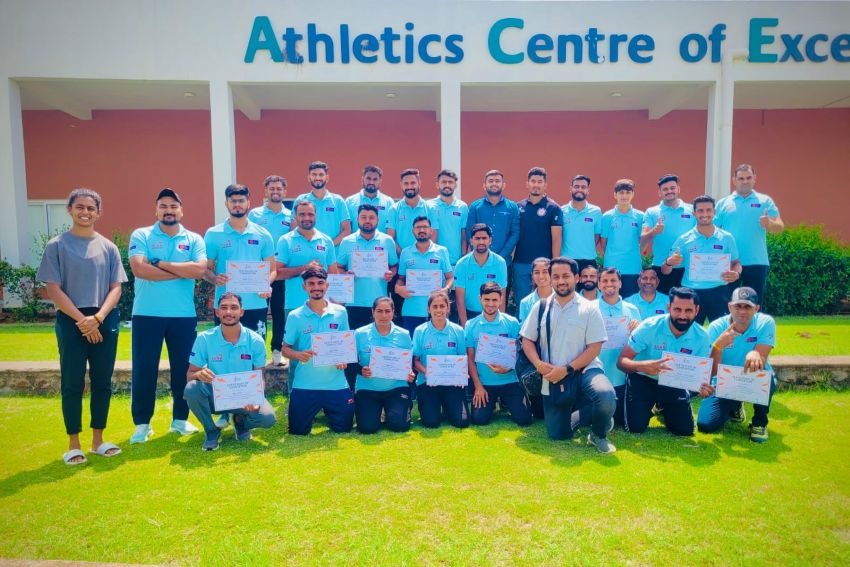
3. State-Level Tournament
Objective:
To recognize and celebrate the most promising athletes from across Rajasthan, providing them with professional exposure and mentorship opportunities.
Highlights:
- Conducted annually since 2022, with 4th edition scheduled for 2025.
- Features top athletes from 12 zones across the state.
- Organized as a flagship CSR sports event of AU SFB.
Creates visibility for emerging athletes, connects them with coaches and institutions, and motivates others to pursue sports seriously.
4. Weekend Leagues
Objective:
To sustain engagement, encourage regular practice, and maintain competitive readiness between tournaments.
Highlights:
- Organized regularly across Bano Champion zones started in 2023 and this year it is its 3rd edition.
- Provides short-format, high-intensity matches for continuous development.
- Focuses on team coordination, skill retention, and performance tracking.
Ensures year-round athlete engagement and bridges the gap between training and tournament performance.
Conclusion: From Inclusion to IndependenceAt AU Small Finance Bank, we believe that true transformation doesn't come from waiting for change—it comes from being the change. 'Badlaav Humse Hai' embodies this conviction: meaningful social impact begins with taking responsibility, creating opportunities, and empowering communities to shape their own destinies. It's not about philanthropy; it's about partnership. It's not about dependence; it's about building self-reliance. This guiding principle drives every initiative we undertake, ensuring that the change we create is sustainable, dignified, and transformative.
Across initiatives—AU Udyogini, AU Ignite, and AU Bano Champion—AU Small Finance Bank has crafted a powerful model of empowerment through opportunity. Each program begins with inclusion but ends with independence, reflecting the Bank’s vision of sustainable community transformation.
“Our CSR philosophy is not about short-term aid,” concludes Mr. Uttam Tibrewal. “It’s about consistently equipping people with skills, confidence, and opportunities so that they no longer depend on us. When women entrepreneurs, youth professionals, and child athletes thrive independently—that’s when we know our purpose is fulfilled.”
By focusing on empowerment rather than assistance, AU Small Finance Bank contributes directly to India’s journey toward Viksit Bharat 2047, advancing SDG 4 (Quality Education), SDG 5 (Gender Equality), SDG 8 (Decent Work and Economic Growth), and SDG 10 (Reduced Inequalities).
With its footprint across 21 states and 4 UTs, the bank extends meaningful CSR support through AU Kartavya—a comprehensive initiative that addresses critical community needs in livelihood, healthcare, education, environmental sustainability, water conservation, road safety, and beyond. These initiatives embody the bank's belief in purpose-driven banking as a catalyst for unlocking potential, building self-reliance, and creating an India where every aspiration finds fertile ground.
(Disclaimer: All views and responses in this story are attributed to Mr. Uttam Tibrewal, Executive Director & Deputy CEO, AU Small Finance Bank)




 Each of the bank’s flagship and strategic CSR programs such as: AU Ignite, AU Udyogini, and AU Bano Champion represents a cornerstone of this mission. Together, they align with India’s Viksit Bharat 2047 vision, creating equitable opportunities and enabling self-sustained futures that contribute to a developed India.
Each of the bank’s flagship and strategic CSR programs such as: AU Ignite, AU Udyogini, and AU Bano Champion represents a cornerstone of this mission. Together, they align with India’s Viksit Bharat 2047 vision, creating equitable opportunities and enabling self-sustained futures that contribute to a developed India.




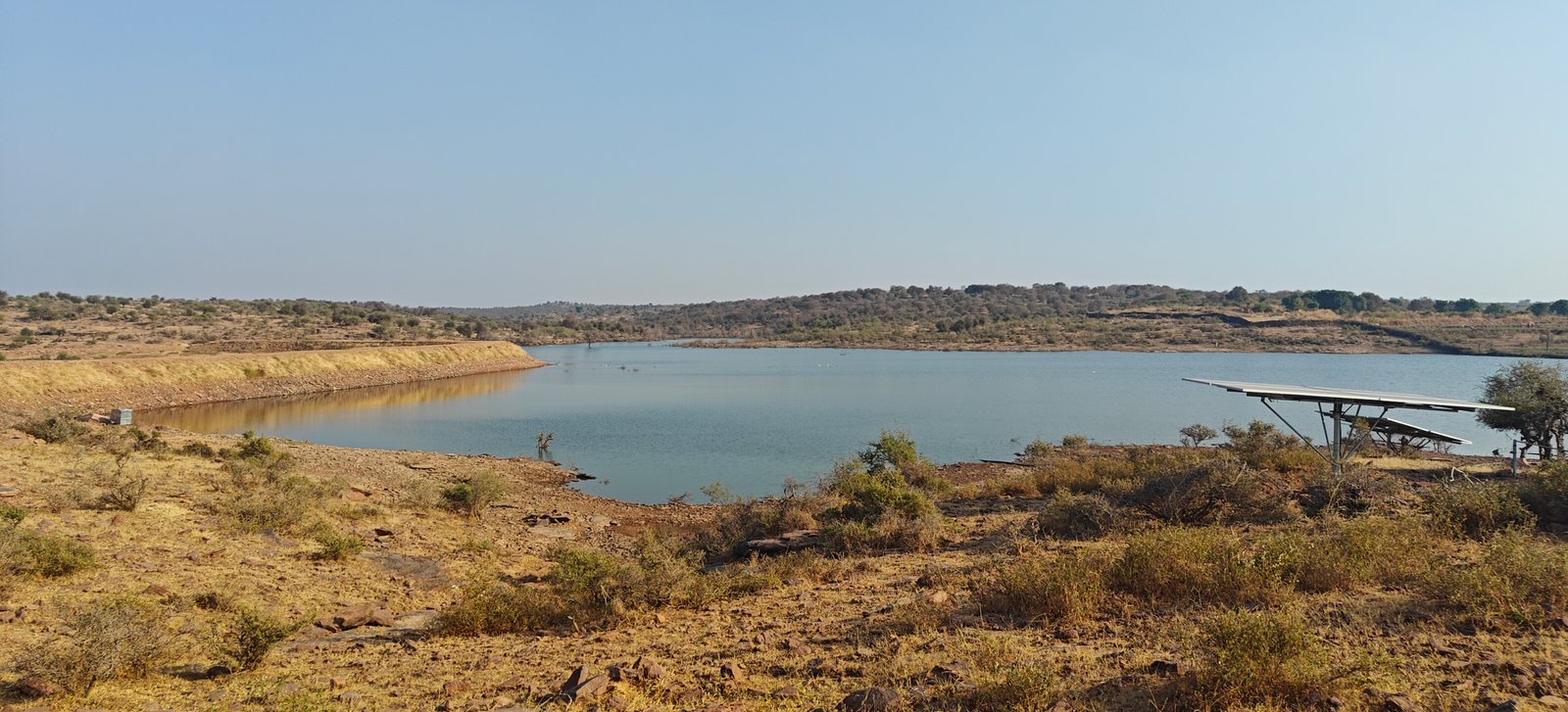



.jpg)


